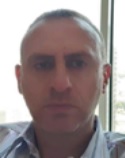Culture is all around us. Culture is inside of us, it is our ‘social’ DNA. In diplomacy in general, especially in economic, we must understand the economic benefits of cultural differences and how to decode the cultural codes of members of other nations and states. This method is based on understanding of cultural codes, but also on understanding the psychological challenges that arise in working with people who come from different backgrounds, as well as advising on how to adapt without losing One’s own values. Covid and post-covid times have once again reminded us how flexible we need to be and look for pportunities to increase business in all circumstances. Nothing is just black or white in international business and relations, I often used to say that to students, and I still believe so. Therefore, I will explain here how the ‘Global dexterity’ method can help increase global cooperation, which is one of the basic goals of the economy, and therefore economic diplomacy.
Intercultural communication skills are crucial for diplomats, both at the personal level and at the level of the country or organization they represent. Without understanding the differences and similarities in our cultures, there is no definition of a common space for prosperity that will arise from economic cooperation. That is why the ‘Global Dexterity’ method first explains the cultural codes that can describe literally all the cultures on our planet. Diplomats will learn to identify each culture through six codes, but also their own position of comfort within.
These six codes are:
the level of directness with which a particular culture is characterized,
level of enthusiasm in communication,
level of formality,
level of assertiveness,
level of self-promotion,
level of personal disclosure.
Every culture differs by these codes, but that does not mean that every individual is equally comfortable within these codes. And the essence is that only in personal communication and honest attitude towards ourselves and others we will understand how more or less comfortable we are with our own culture, but also the possibilities of our own adaptation to get closer to another culture. Certainly, the precondition of this method of ‘Global dexterity’ is to be open to discovering others, but also ourselves and our own values. The main difference of the ‘Global Dexterity’ method in comparison to all available intercultural training is that by using the above six codes we can scan each culture and our place in it.
Understanding cultural codes is just beginning to use this method. The next step is to identify gaps, eg. space for approaching another culture, but also one’s own psychological barriers in that process of adaptation. Four psychological challenges are identified here: authenticity, likability, competence, and resentment. These challenges are specific to everyone, and are based on our own values and belonging to the national culture, but also micro-cultures specific to each region, profession, minority group, or organization. Another great advantage of the ‘Global Dexterity’ method is that we are not required to give up our own values in order to get closer to another culture. On the contrary, we are looking for similarities in ourselves that will justify the process of adaptation in order to realize the long-term goals of our career and the economic policy of the countries or organizations we represent. For each individual, a space for improvement is identified, which will most quickly master the problems in communication, but also motivate them to improve in the use of intercultural codes in international negotiation and teamwork. This makes this method even more attractive for diplomats who want to quickly and sustainably master cultural challenges in a logical way without the dry memorization of ‘do and don’t’, typical to other methods of cultural training. This method can be mastered through group training or individual coaching. You can read more about ‘Global dexterity’ certified trainers here: https://www.andymolinsky.com/global-dexterity-method-course/certified-trainers/, and for any doubts please contact me by email contact@seeuropeconsult.solutions .
About Author
Dr. Nikola Perović

Dr. Nikola Perovic is international management consultant and coach, specialized in cross-cultural relations challenges, and international marketing. He is an author of the book “The International Post-Acquisition Management” which includes 16 case studies on international anagement changes and integration in selected companies in various industries. He was university professor of international business and marketing at the Higher Colleges of Technology in Dubai from 2015. till 2021. Previously he was a lecturer in various universities in South Eastern Europe. He held international seminars/conference speeches on cross-cultural management, marketing management, international acquisitions, international trade, export management, and management in tourism. He has been international consultant for International Trade Center (Geneva), export promotion agency of the United Nations and World Trade Organization. Dr. Perovic also worked for the United Nations Development Programme as the Programme Manager for Low Carbon Tourism in Montenegro. He was the Director of Export for the largest national beverage producer and the argest national exporter for more than seven years. His areas of expertise include intercultural communication, integration management, sales & marketing integration, cultural changes, international trade, business coaching, sustainable tourism. He has been conducted research in arious industries, such as food industry, wine industry, beer industry, pharmaceutical industry, glass containers production, packaging, telecommunications, tourism.
He earned a Ph.D. in Economics (International Management and Marketing focus) from the University of Montenegro, and MBA in International Business from Brandeis University, as a Fellow of the US State Department. Nikola also earned a master’s degree in Economics from the Faculty of Economics in Podgorica, and BSc in Marketing from University of Belgrade.
Dr. Nikola is founder of companies in the UAE, Perovic brothers-Smart Education Europe Consult, and in the UK, SEEurope Consult Ltd.
Languages: English, Serbo-Croatian
Located in: Montenegro and UAE
Time Zone: CET (UTC+1)
Website: https://www.seeuropeconsult.solutions; https://www.linkedin.com/in/nikolaperovic
